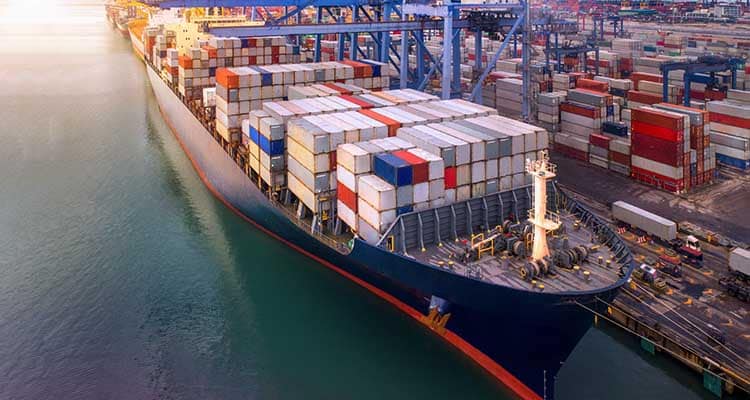It’s almost impossible to talk about the growth of the e-commerce industry without the logistics industry. After all, it’s the latter that fulfills the promise of the former.
In Australia, for instance, e-commerce is currently on a tear. Last year, as many as 33% of Australians ordered goods from abroad online. Given how the pandemic forced a nationwide lockdown, you can bet that the numbers for local e-commerce are even higher.
And considering how online shopping is so much more convenient, it’s not likely that this trend will go away any time soon. Hence, it’s not surprising that the logistics industry Down Under will grow by 2.5% over the next four years.
Currently, many AU logistics companies are looking into outsourcing as they scale up. Back-office functions are an especially popular choice, particularly the following:
1. Invoice Processing.

This task is tedious and time-consuming, but it is necessary to any business. Companies need a healthy cash flow to ensure smooth operations. Hence, accurate and timely invoicing is imperative.
Remote invoice processing specialists can take this task off your hands. They’ll ensure consistency and accuracy as well as facilitate up-to-date client billing.
2. Logistics Data Entry.

As with the previous item, this is another tedious yet crucial task. It doesn’t directly generate revenue, but it ensures that your company’s database remains in tip-top shape. Generating invoices, purchase order entries, bill of lading (BOL) data entries, driver log entries, and so on all fall under this category.
Little wonder then that this remains to be one of the most commonly outsourced tasks in any industry.
3. Ocean Bill of Lading.

Shipping via sea cargo often plays a huge part in a logistic company’s international freight operations. Thus, it’s important to have a competent team filing various ocean BOL’s and ensuring their accuracy and veracity. This prevents costly mistakes and bottlenecks along the way.
These BOL’s include a clean bill of lading, a straight bill of lading, onboard bill of lading, and a shipper’s order bill of lading.
4. Ocean Freight Shipping.

Since it’s far cheaper than air shipping and is especially suited for moving massive volumes of product, ocean freight is an invaluable option.
Remote talents help facilitate a streamlined and simplified ocean freight shipping process in many ways. They can process invoices, execute bills during pre-auditing and post-auditing services, and take care of numerous shipping documents.
And they can do all of these effectively and efficiently, freeing you to focus on activities that’ll actively grow your logistics business.
5. Railway Freight Logistics.

Surprise! There are still companies the world over that transport cargo via railways. However, this doesn’t mean they should fall behind applying the latest technology for back-office functions.
For instance, remote talents can digitise freight invoices, railway freight data management, indexing, processing, and more. They can also bring their expertise into assisting with key processes like financial analysis and planning.
6. Road Freight Bill of Lading.

Massive operational headaches stem from mishandled BOL’s. Goods won’t be dispatched in a timely manner, for one.
Hence, proper BOL handling is critical. Preparing the BOL correctly and plotting relevant documentation for each one are a must. So are checking and correcting any errors or oversights.
Fortunately, these can all be outsourced to competent remote talent.
7. Road Freight Logistics.

There are plenty of complexities that come with managing and streamlining the goods supply chain. Unfortunately, not all logistics companies have the expertise or the in-house staff to execute related tasks well.
This is where remote work talent comes in. They can assist with crucial tasks like bill data entry and freight receivable processing. Not only will they get it done, but they’ll get it done properly and at a competitive price.
The logistics industry plays a crucial role in Australia’s economic development. Because of the country’s geographical location, it’s isolated from many key international markets. It’s thus highly likely that the volume of international cross-border trade will only increase in the future. A robust logistics industry is crucial to ensuring that all goes smoothly.
Outsourcing helps strengthen the logistics industry because it can address some of the latent challenges. Chiefly, these are an aging local workforce and high operational costs. The median age of the working population in the Philippines is 25, and the strength of the Australian dollar here entails competitive wages that still provide a decent living for remote workers.
Remote Staff has spent the past decade and beyond matching Australian companies with the right Filipino remote talent. We’ve also garnered valuable experience in onboarding both clients and remote talent as well as providing continuous support to ensure a harmonious working relationship throughout.
Click here to give us a call or here to schedule a callback today.
Serena has been working remotely and writing content for the better part of the last decade. To date, she's written for Pepper.ph and Mabuhay Magazine, among others, and has churned out more than a thousand articles on everything from The Basics of Stock Market Investing to How to Make Milk Tea-Flavored Taho at home. Hermits, aspiring hermits, and non-hermits with interesting project propositions may email her at serena.estrella10@gmail.com.
























 Zero Recruitment Fee
Zero Recruitment Fee